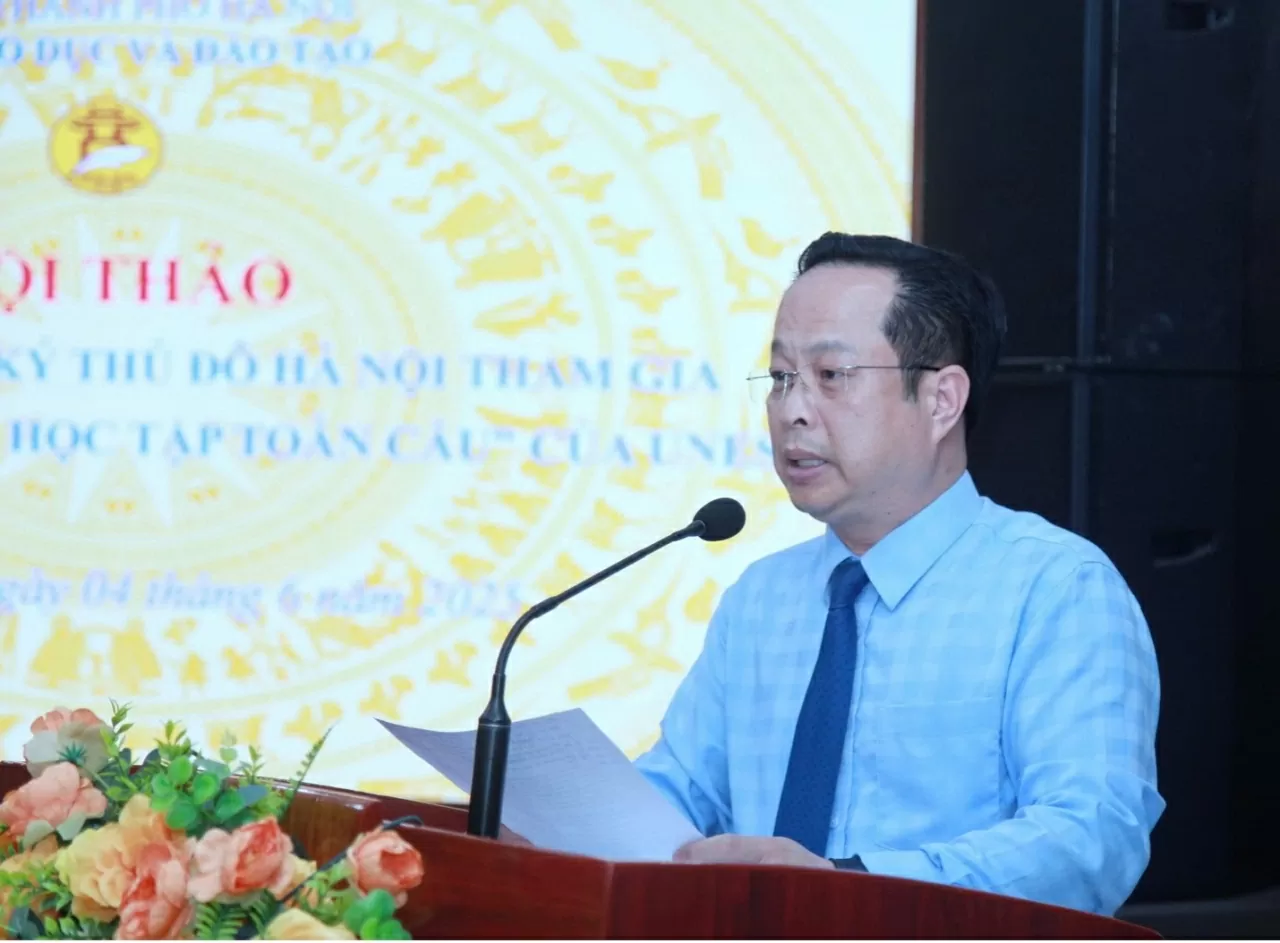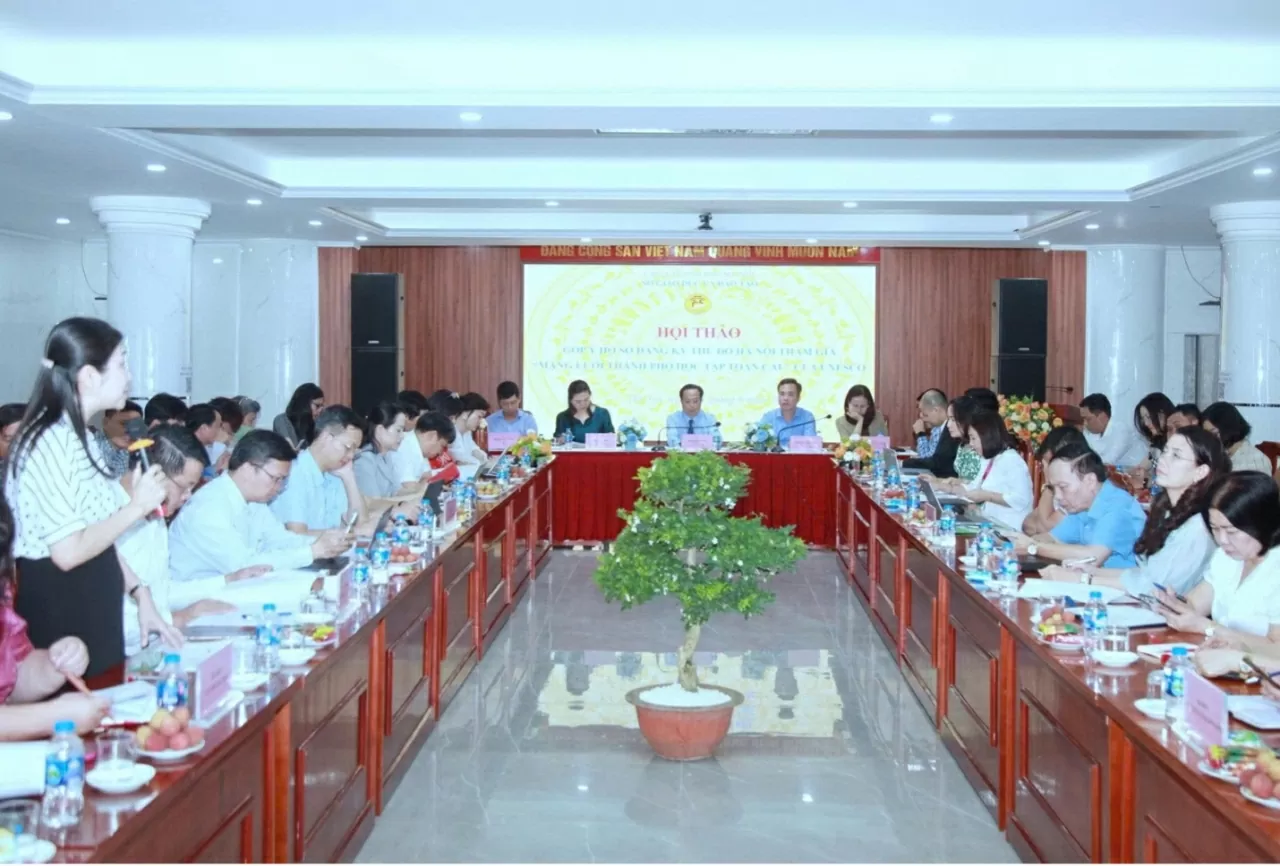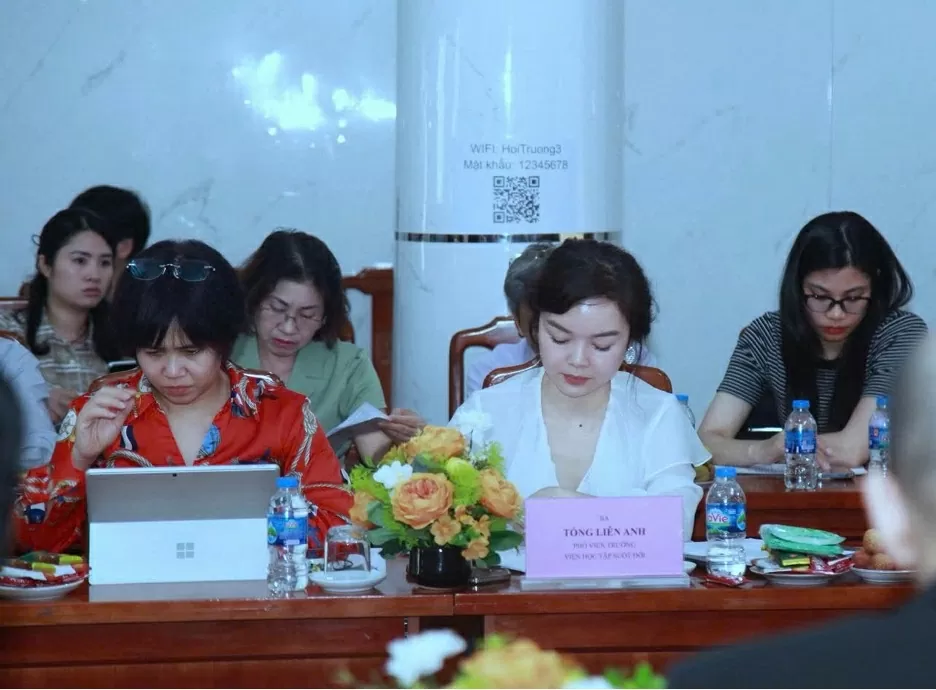
Hanoi finalizes application to join the UNESCO Global Network of learning cities
Latest
On the afternoon of June 4, the Hanoi Department of Education and Training (DOET) convened a high-level workshop to finalize and seek expert input on the city’s official application to join the UNESCO Global Network of Learning Cities (GNLC). The event marked a significant milestone in Hanoi’s long-term strategy to position itself as a regional leader in lifelong learning and human-centered urban transformation.
 |
| Mr. Tran The Cuong, Director of the Hanoi Department of Education and Training, delivered the opening speech at the workshop. |
Speaking at the opening of the workshop, Mr. Tran The Cuong, Director of the Hanoi Department of Education and Training, emphasized the growing importance of learning in an ever-changing world. “As the world undergoes rapid and unpredictable change, knowledge, creativity, and adaptability have become the foundation for sustainable growth”, he stated.
“In this new reality, learning can no longer be confined to the classroom or to childhood. It must continue throughout life-reaching into every neighborhood, workplace, and community. Lifelong learning must become a shared culture, not merely a policy objective”.
Hanoi’s aspiration to join the GNLC is more than a quest for international recognition. It reflects the city’s deep and enduring commitment to ensuring that all residents, regardless of age, background or ability, have equitable access to learning opportunities that enable them to thrive, contribute, and shape a more inclusive and forward-looking urban future.
Advancing lifelong learning across all fronts
The city’s draft application outlines significant progress across all six areas of the GNLC framework, which include promoting inclusive education, revitalizing community-based learning, supporting learning in the workplace, advancing digital learning, improving education quality, and linking learning to sustainable development.
Over the past decade, Hanoi has embedded lifelong learning into its educational strategies and social development plans. In partnership with community groups, professional unions, and local organizations, the city has launched a variety of grassroots initiatives such as “learning citizens”, “learning families”, “learning clans,” “learning units” and “learning communities”. These models promote engagement and empowerment, bringing education into homes, offices, and local gathering spaces-ensuring that learning is a lived experience, not just a formal system.
 |
| Comprehensive view of the consultative workshop on Hanoi’s application to join the GNLC. |
Hanoi has also accelerated efforts in digital transformation. The city has expanded its use of educational technologies through e-learning platforms, open educational resources, and distance learning programs-tools that became especially vital during the COVID-19 pandemic. At the same time, authorities have prioritized digital equity, developing inclusive programs to reach older adults, informal workers, people with disabilities, and marginalized communities.
Lifelong learning is also being integrated into broader municipal priorities including poverty alleviation, healthcare access, environmental protection, and workforce development. These cross-sectoral strategies reflect Hanoi’s belief that education is both a driver and enabler of social progress.
As the lead coordinating agency, Hanoi DOET has taken a data-driven, participatory approach to developing the GNLC application. “This is not just a process of compiling evidence; it’s a process of envisioning the future of our city through the lens of learning”, Mr. Cuong stated.
Alongside the application, the Department is drafting a detailed roadmap to be submitted to the Hanoi People’s Committee. This roadmap outlines actionable and high-impact strategies for community-level implementation of lifelong learning initiatives. Key areas include investment in local learning infrastructure, professional development for educators and facilitators, and mechanisms to monitor progress and ensure accountability.
The ultimate goal is not just to meet the 42 GNLC criteria, but to internalize the learning city philosophy into Hanoi’s institutional DNA—making it a continuous engine for inclusive and sustainable urban development.
A bold step toward global recognition and local transformation
As Hanoi approaches this milestone, the city is doing more than seeking entry into a global network. It is reaffirming its identity as a city where learning, equity, and innovation intersect. In an era marked by uncertainty and disruption, Hanoi’s firm commitment to fostering a culture of lifelong learning represents a bold and timely response to the evolving needs of its citizens.
 |
| Experts attended the workshop to contribute feedback on Hanoi’s GNLC application. |
The GNLC application process has allowed Hanoi to reflect on its achievements, align with global benchmarks, and refine its strategic direction. It has also strengthened collaboration between sectors-bringing together government, educators, community leaders, and international partners under a shared vision: building a learning city where no one is left behind.
With strong political leadership, a rich cultural heritage, and a growing ecosystem of inclusive learning practices, Hanoi is well-positioned to lead. The capital is not only advancing Vietnam’s educational future-it is contributing to the global conversation on how cities can promote human development, civic engagement, and sustainable growth through learning.
Hanoi’s journey as a learning city will not end with joining the GNLC. It will begin anew-with greater responsibility, wider collaboration, and deeper commitment. As a global partner, an innovator, and a compassionate advocate for education for all, Hanoi stands ready to inspire and be inspired.
In the years to come, the city aims to be not only a national model but also a powerful voice from the Global South-demonstrating how inclusive, lifelong learning can empower citizens, transform communities, and build a more just and sustainable world.









